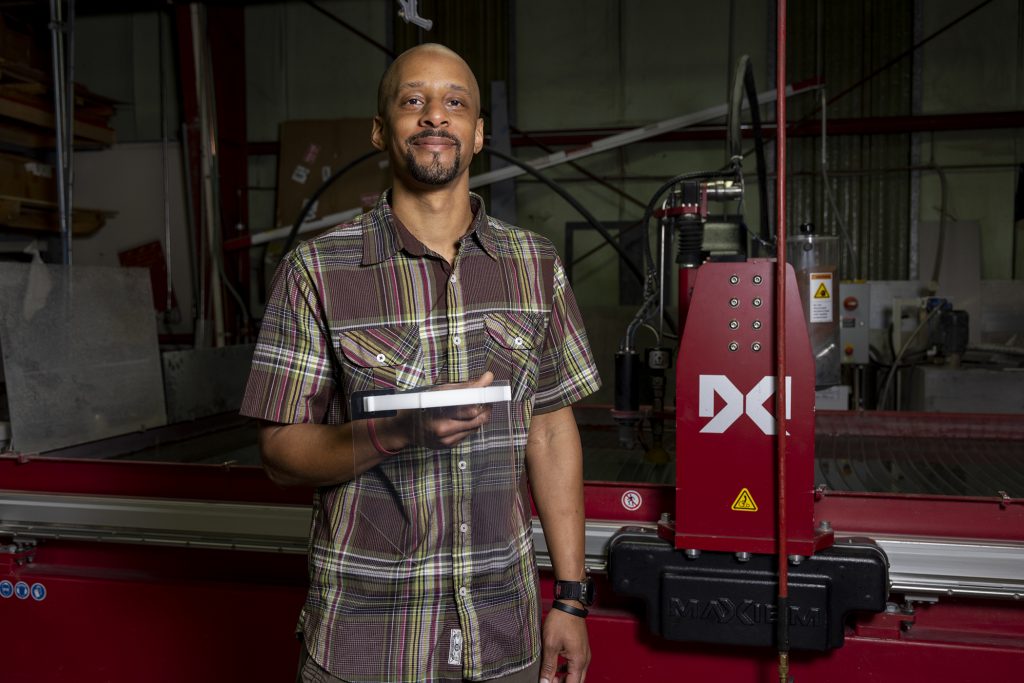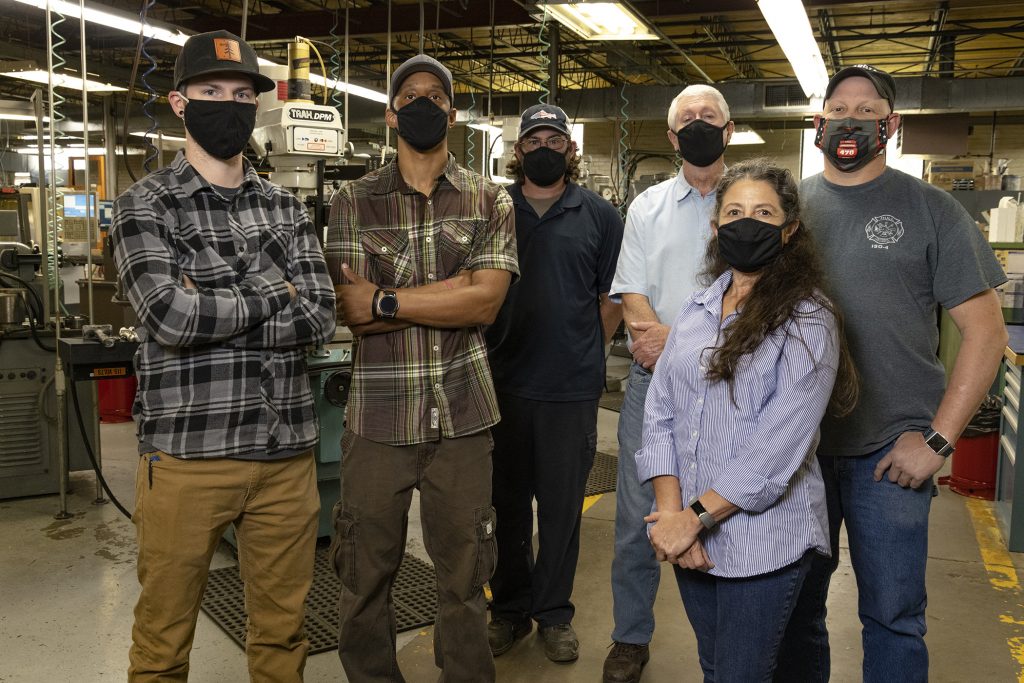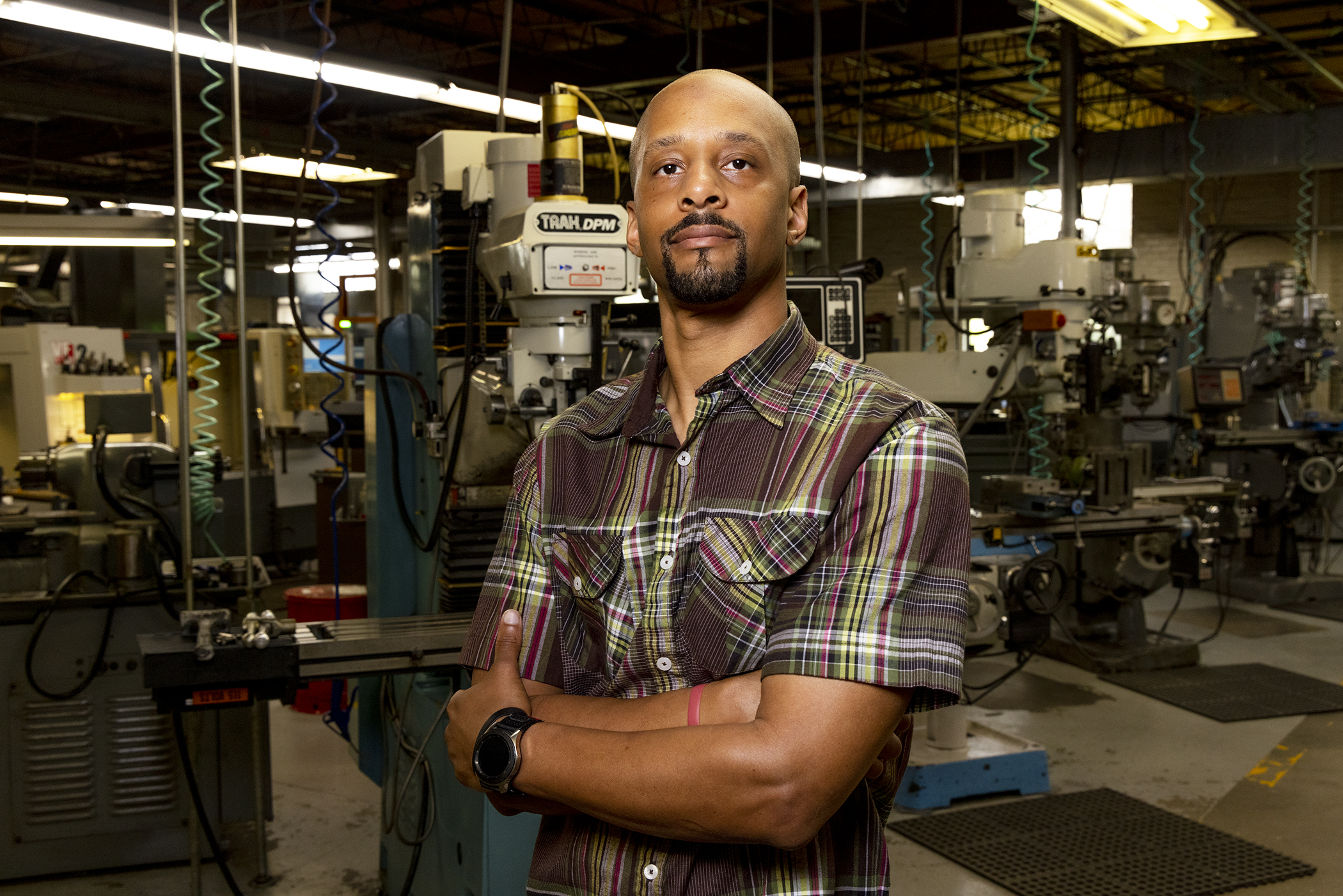When Carlos Barrow walks into his shop, every day is a “Life is like a box of chocolates” situation — he never knows what he’s going to get. As manager of the Instrument Design and Fabrication Shop at the Office of Research, he is tasked with designing and making pretty much whatever anyone needs.
 “Just about anything you can think of comes through the door. It could be anything from a face shield to a water tunnel to a cart to pull a device,” said Barrow. On a recent afternoon, his shop was working on several projects, as usual, including 41 custom tables for an expansion at the College of Veterinary Medicine and a custom dryer changer and core-cutting rig that will be used for testing samples from soil and water.
“Just about anything you can think of comes through the door. It could be anything from a face shield to a water tunnel to a cart to pull a device,” said Barrow. On a recent afternoon, his shop was working on several projects, as usual, including 41 custom tables for an expansion at the College of Veterinary Medicine and a custom dryer changer and core-cutting rig that will be used for testing samples from soil and water.
“It’s never the same thing, so you’re constantly learning about a lot of things. I’m like a jack of all trades and master of none,” he joked.
During the pandemic, the shop kicked into an even higher gear. They had to provide necessary, customized equipment for University of Georgia researchers, plus fill new COVID-19 supply needs. For example, they made over 2,000 face shields in conjunction with the College of Engineering and UGA Libraries.

The shop is used to creating specialized equipment on a tight turnaround. In the case of the face shields, there was an advantage because there were already designs available. “I looked at some designs, narrowed them down to what we could do and modified them so we could make them here in our shop with our tools,” said Barrow.
Usually, Barrow has less to go on when someone brings him a project. “Sometimes they have a design, but a lot of times they just have an idea and we find a way to make or build their idea,” said Barrow.
Barrow, who grew up working in his dad’s cabinet shop, has been at UGA for 15 years, first a year and a half at Facilities Management, then in instrument design. “It’s a team here in the shop,” said Barrow, crediting his co-workers – Terri Barber, JC Adams, Tony Drake, Spencer East and Neal Strickland. “I couldn’t do my job without them. It’d be impossible.”

The projects that come into the shop can range from little jobs that take 30 minutes or so to months-long projects, and can range from large orders to a single item they’ll never make again.
The challenges of his job are also exactly what Barrow likes about it. “When somebody comes to me and says they want something made to shell peanuts or a machine that can sieve dirt and not clump up, I think ‘OK, how am I going to do that?’” he said.
“When I get stuck, sometimes it’s good for me to just walk away. Over a weekend, I’ll ride my motorcycle and get my mind off of it, then come back with a fresh set of eyes. I’ll come back the next day and it’s like ‘Oh, why didn’t I think of that yesterday? It’s so simple.’”
“It stays pretty interesting around here,” he said. “Some people can get really good at one thing, but we try to be as good as we can doing a lot of different things.”


